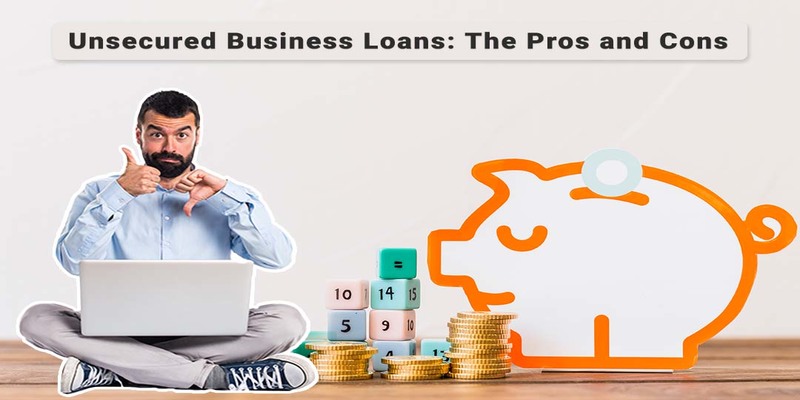Finance
Unsecured Business Loans: The Pros and Cons
An unsecured business loan is a type of business loan that does not require any collateral to secure it. When applying for unsecured business loans, lenders will look largely at the company’s credit history.

Whether you operate a startup business or an established brand, there will no doubt be instances when working capital is stretched and a cash injection is required. In times of financial woe, most businesses look at business loans, with business loans being a quick and easy way to bring large sums of money into the business and pay it back over a predetermined period of time.
If you are comparing business loans, you will quickly notice the sheer volume of options out there; all of which boast different advantages and disadvantages to the lender. However, one of the most in-demand business loan types is unsecured business loans.
What is an unsecured business loan?
An unsecured business loan is a type of business loan that does not require any collateral to secure it. When applying for unsecured business loans, lenders will look largely at the company’s credit history.
By contrast, a secured loan will be backed up by assets such as property, equipment, or any other valuable items; assets that can be seized by lenders should the loan not be repaid.
The pros of unsecured business loans
There are evident benefits to unsecured business loans. Below are a few notable advantages:
- Not having to put any of your assets in a state of vulnerability: Your business’ assets are hugely important to your business’s financial health and value. This is why protecting them at all costs will understandably be the priority. When taking out an unsecured loan, the lender will instead require a Personal Guarantee.
- A quick solution to cash flow problems: Unsecured business loan applications are relatively straightforward, with lenders making decisions on cases usually within 24 hours. For this reason, they are used commonly by companies in need of funds quickly.
- Flexible terms: The number of companies offering unsecured business loans is extensive, meaning the options available to businesses are great. Now, businesses can secure all types of loans with all types of repayment requirements, meaning there will be a loan option that’s flexible enough to meet your business needs.
The cons of unsecured business loans
Like any finance facility, there are cons associated with taking our unsecured business loans. If you are seeking additional working capital via an unsecured loan, you should be aware of the below cons.
- Personal Guarantees: Lenders will require a Personal Guarantee for business loans. This means that should the business fail to make the repayments, the responsibility will fall on the individual.
- Qualification criteria: When applying for an unsecured business loan, the lender will understandably have certain criteria that you will be required to meet, requesting various documents from you in order to gauge affordability. These could include recent accounts and bank statements.
So, there you have it; the pros and cons of unsecured business loans. If this blog has identified that an unsecured business loan is a right option for your company, contact Simply Factoring Brokers today and request a free, no-obligation quote. As whole-of-market brokers, they can access the best products and negotiate the best fees with their enormous panel of funders.
-

 Gadgets & Electronics7 days ago
Gadgets & Electronics7 days agoComprehensive Acer Chromebook Laptop Reviews: Unveiling the Best Models of 2025
-

 Cryptocurrency7 days ago
Cryptocurrency7 days agoBlockchain Beyond Cryptocurrency: 5 Game-Changing Applications You Should Know
-

 Education7 days ago
Education7 days agoUnlocking Knowledge: How the Udemy App Transforms Online Learning
-

 Government7 days ago
Government7 days agoTrump Administration Targets Harvard: Federal Contracts and International Students at Risk
-

 Art & Culture7 days ago
Art & Culture7 days agoThe Ultimate Guide to Nails Hollywood: Trends, Styles, and Top Salons in 2025
-

 Art & Culture7 days ago
Art & Culture7 days agoDiscover the Best Romance Movies on Netflix: Your Ultimate Guide for 2025
-

 Business7 days ago
Business7 days agoIs the Housing Market Going to Crash in 2025? Insights and Predictions Ahead
-

 Business7 days ago
Business7 days agoIs the Housing Market Going to Crash in 2025? Insights and Predictions Ahead


















